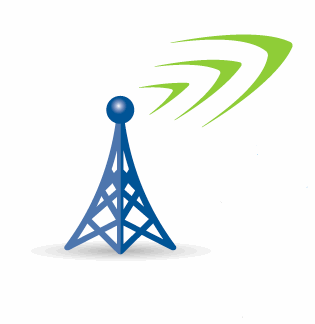- Joined
- Jul 25, 2023
- Messages
- 13
How does a Playlist become public?
How does a Playlist become public?
I'm disappointed not being able to listen to my nodes for local area I'm being forced to buy a new scanner $700 to solve my problem being able to listen to All frequencies for my area
Thank you.
Calls - Public Playlists Now Available
I've rolled out two public playlists for testing https://www.broadcastify.com/listen/ctid/2579 https://www.broadcastify.com/listen/ctid/2699 If you are a calls provider and want to "publish a list" to a county, start building your playlists and soon I'll reach out here to solicit you to let...forums.radioreference.com
You won't be able to feed a DMR system using SDRTrunk. BCFY doesn't support anything other than P25 systems from SDRTrunk. You can use Trunk Recorder however. And yes, if you are approved as a node, once everything is set up and working properly, any of the DMR frequencies you ingest into Calls would then be available to add to playlists for anyone. The one limitation I am sure you are aware of is the bandwidth of the dongle, and having to be within that, but if I am looking at the system I think you are, you're well within range of that for those two frequencies.So if I become a feed user for VHF DMR Sheriff 1 and Sheriff 2 could I use one dongle for the 2 different frequencies into SDR trunk? then I could add them into a playlist with my Ohio MARCS Talkgroups with this feature.
$100 of SDRs would suffice. Get a $100 off-lease computer if you want a dedicated machine. Run Rdio-scanner on a Digital Ocean Droplet for $5/month if you want Calls type functionality on your own equipment.I'm disappointed not being able to listen to my nodes for local area I'm being forced to buy a new scanner $700 to solve my problem being able to listen to All frequencies for my area
Right now I'm using SDRTrunk which isn't the greatest for duplicate suppression as it tends to grab the first call, not the best. Since I can scan up to six towers on the same phase 1 C4FM system - Indiana Safe-T - that may carry a call, would it make sense to set up a separate node for each tower and let Broadcastify choose the best? This specifically would be Grant, Wabash (Somerset and Wabash city), Howard, Madison, and Blackford. I don't try to scan deep into Indianapolis as it's frequency assignment chaos there.
Before this improvement it didn't seem to matter, but now that you evaluate all the copies? Would be nice to give the best I receive.
When I get a bad decode, it's usually just cuts short. The real headache is on state police where the same talk group is not the same traffic across towers. That really messes with source selection.RR isn't going to be able to do decide upon quality of decode. So even though yes, you should split everything up and have separate nodes, and use the duplicate suppression by talkgroup feature, you shouldn't expect RR to determine which of the possible 6 sources gave the best decode. If you are monitoring any site that is iffy and doesn't provide 100% perfect decode nearly all the time, you probably shouldn't be feeding that node to BCFY Calls. RR is going to look at things like skew, time of arrival, and whatever other metrics Lindsay has involved. If you have six separate nodes, one of them is going to capture, decode and upload the raw audio before the others. For instance, if the transmission actually originated by a radio on the Grant tower, it is likely that will nearly always be the first one to make it to RR. The others would have a slight delay as that traffic passes through the various other site controllers that have a user affiliated with that same talkgroup.
I think Lindsay would prefer separate nodes (although I'm not sure he specifically stated that). Others do indeed do it like you currently are and are passing traffic from multiple sites to one node. But i dont think you will ever be able to get around the issue whereby the decoded audio from one site is better than the others but the audio from one of the other sites ends up being the audio accepted by RR.
When I get a bad decode, it's usually just cuts short. The real headache is on state police where the same talk group is not the same traffic across towers. That really messes with source selection.
The other gotcha is I cover some towers that no one else does so if I drop it one, all exclusive traffic simply doesn't make it to calls at all.
If you are referring to some statewide P25 system, then a particular talkgroup is going to carry the exact same traffic across any/every tower that there is a radio affiliated. For instance, TG 45192 on some P25 system, with that P25 system having 20 sites, isn't going to carry one conversation on TG 45192 on one site that is different than the conversation on TG 45192 of another site of the same system. That just isn't going to happen.

